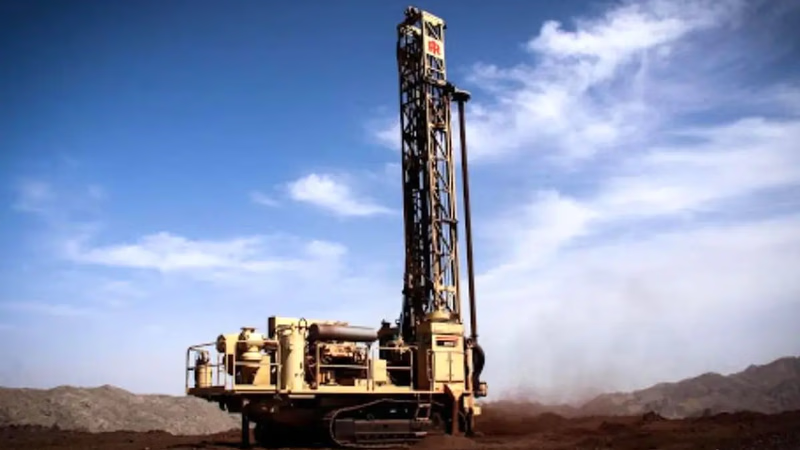
Exploring trade opportunities in Middle East economies.
Governments in West Asia are actively working to diversify their economies by promoting sectors beyond oil and gas. This includes investing in industries such as manufacturing, tourism, construction, finance, technology, renewable energy, agriculture, and healthcare. By developing these sectors, countries aim to create new job opportunities, attract foreign investment, and reduce their dependence on oil revenues. West Asian countries are investing in industrialization and manufacturing to build local production capabilities and increase exports. This includes establishing industrial zones, promoting local manufacturing, attracting foreign direct investment (FDI), and developing supply chains. Efforts are being made to produce goods and components locally instead of relying on imports, thereby boosting domestic industries and reducing dependency on oil-related imports.
West Asian countries are developing their financial sectors to become regional financial hubs. They are establishing international financial centers, promoting Islamic finance, attracting foreign banks and investment firms, and expanding capital markets. Developing a robust financial industry can contribute to economic diversification and reduce reliance on oil revenue. In the medium term, industries such as electronics, automobiles, plastics and agriculture in the Middle East are expected to grow at a healthy pace. This, in turn, will grow the industrial packaging market in the region.
Governments in West Asia are focusing on education and skill development to build a knowledgeable and skilled workforce. They are investing in quality education systems, vocational training, and technical institutes to equip their citizens with the necessary skills for emerging industries. A skilled workforce is essential for the growth of non-oil sectors and the development of an oil-independent economy. Countries in West Asia are recognizing the importance of renewable energy sources and are investing in solar and wind power projects. By harnessing their natural resources for clean energy production, they aim to reduce carbon emissions, achieve energy independence, and create a new sector that can contribute to economic growth.
In the Middle East and North Africa region, the focus of governments is shifting to oil independent industrial activities, and long-term dependence on crude oil-independent businesses is gradually waning. At present, non-oil goods and services play a very small role in the Middle East economy compared to other regions. However, non-oil exports are expected to play a vital role in further developing the comprehensive growth model to secure the region's future.
The concept of an oil-independent economy in West Asia, also known as the Middle East, refers to the idea of reducing dependence on oil revenues and diversifying the economic structure to be less reliant on oil production and exports. While the region has traditionally been heavily dependent on oil, efforts are being made to develop other sectors and promote economic diversification. While progress has been made in diversifying the economies of West Asian countries, the transition to an oil-independent economy is a long-term process that requires sustained efforts, policy reforms, and investments. Governments in the region are actively pursuing these strategies to reduce dependence on oil and promote sustainable economic development.
West Asia has significant potential for tourism due to its historical sites, cultural heritage, and natural attractions. Governments are investing in tourism infrastructure, promoting tourism campaigns, and facilitating visa processes to attract more visitors. Developing this sector can provide employment opportunities, generate revenue, and diversify the economy away from oil. West Asian countries are focusing on developing knowledge-based industries such as information technology, research and development, innovation, and education. They are establishing technology parks, supporting startups and entrepreneurship, and investing in research and development institutes. These initiatives aim to foster a knowledge-based economy that relies on intellectual capital rather than oil resources.
-
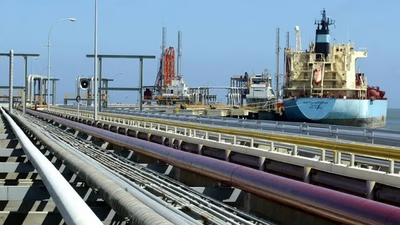
West Asia, rich in oil and gas reserves, plays a crucial role in the global energy market. Countries such as Saudi Arabia, Iran, Iraq, Kuwait, the UAE, and Qatar are key suppliers of these resources, which significantly contribute to their economic growth. The revenue from energy exports has enabled substantial foreign exchange reserves and funding for infrastructure development and social welfare programs. Additionally, West Asian nations have diversified their economies by investing in sectors like petrochemicals and tourism. Sovereign wealth funds (SWFs) established by these countries manage surplus funds and invest globally, enhancing financial market stability. Despite the dominance of oil and gas, there is a growing focus on agriculture to ensure food security. Countries like Saudi Arabia and Qatar are implementing agricultural technologies to boost local production. The region"s strategic location has attracted foreign investment and trade opportunities, with nations developing industrial zones and free trade areas to facilitate business activities. Overall, West Asia"s economic landscape is shaped by its energy resources while also adapting to new challenges through diversification.
-
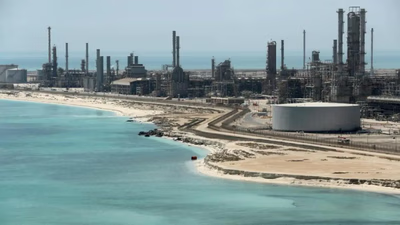
West Asia, primarily known for its oil-dependent economies, faces significant challenges due to its reliance on crude oil exports. Countries like Saudi Arabia, Iraq, and the UAE have historically depended on oil revenues for economic stability and growth. This overreliance has hindered diversification into other sectors such as manufacturing and services, making these economies vulnerable to global market fluctuations and political instability. In response, many nations are initiating economic diversification strategies aimed at reducing dependence on oil. The UAE exemplifies this shift by investing in tourism, finance, and renewable energy. Additionally, sovereign wealth funds are being established to invest oil revenues in international markets for long-term stability. As the region recognizes the need for sustainable energy solutions, investments in renewable projects are increasing. Despite these efforts, the World Bank forecasts modest economic growth for oil-exporting countries in 2021 due to ongoing challenges in global demand and production agreements. The heavy reliance on oil continues to shape fiscal policies and government budgets across West Asia, with fluctuations in oil prices posing risks to economic stability.
-
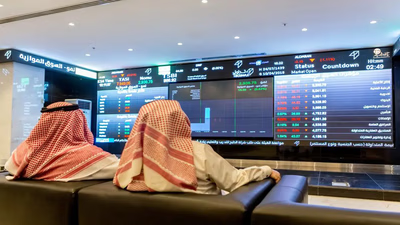
Commodity exchanges play a crucial role in facilitating trade across Asia, particularly in the Middle East and West Asia. With 10 of the 22 major commodity futures exchanges located in Asia, these platforms enable buyers and sellers to engage in trading various commodity contracts. The Dubai Commodity Center, established in 2002, exemplifies the region"s commitment to creating a robust infrastructure for commodity trading. The Dubai Gold and Commodity Exchange is notable for its automated trading of derivatives for commodities like gold and silver, operating primarily in US dollars. This exchange has positioned Dubai as a global hub for financial markets. Additionally, the Dubai Mercantile Exchange has gained prominence as a key energy market since its inception, although competition has emerged with the Shanghai Energy Exchange. In Iran, the Commodity Exchange operates under specific regulations that require brokers to manage purchase orders meticulously. Turkey"s stock market history dates back centuries, with modern exchanges evolving significantly over time. Overall, these exchanges not only facilitate local trade but also connect regional markets to global commodity networks.
-

West Asian governments are actively pursuing economic diversification to reduce reliance on oil revenues. They are investing in various sectors, including manufacturing, tourism, finance, technology, renewable energy, and agriculture. By establishing industrial zones and promoting local production capabilities, these countries aim to boost exports and attract foreign direct investment (FDI). The development of financial sectors into regional hubs is also a priority, with efforts to promote Islamic finance and expand capital markets. A skilled workforce is essential for this transition; thus, investments in education and vocational training are being made. Renewable energy projects are gaining traction as countries seek to harness solar and wind power for clean energy production. While non-oil goods currently play a minor role in the economy compared to other regions, their importance is expected to grow significantly. The shift towards an oil-independent economy involves long-term strategies that require sustained policy reforms and investments.
Additionally, the tourism sector is being developed due to the region"s rich cultural heritage and natural attractions. Knowledge-based industries such as IT and R&D are also being prioritized through the establishment of technology parks and support for startups. Overall, West Asia is making strides towards a more diversified economic landscape that can sustain growth beyond oil. "
-
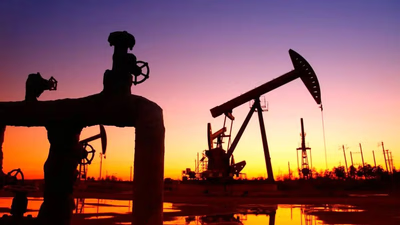
West Asia"s economies are primarily driven by the oil and gas sector, with major producers like Saudi Arabia, Iraq, and Iran leading in exports. These countries have heavily invested in petrochemical industries, producing a range of chemical products. However, there is a growing shift towards renewable energy sources as nations like the UAE and Jordan commit to solar and wind projects to diversify their energy portfolios. The region is also experiencing a boom in the information technology sector, particularly in Israel and Turkey, focusing on software development and cybersecurity. Manufacturing is being promoted across various industries to reduce oil dependency, with significant advancements noted in automotive and electronics. The construction sector has seen rapid growth due to urbanization and investment, particularly in the UAE and Qatar. Innovative agricultural practices are being adopted to enhance food security despite challenging climatic conditions. Additionally, West Asia"s financial sectors are robust, with cities like Dubai emerging as key financial hubs. Overall, West Asia is diversifying its economy while maintaining its traditional strengths.
-
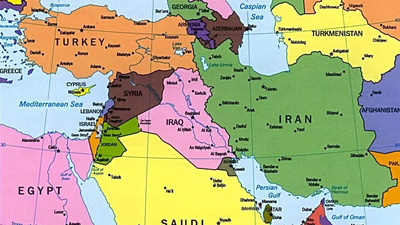
West Asia"s strategic location at the crossroads of Europe, Africa, and Asia makes it a vital hub for trade and communication. The region is rich in oil and natural gas reserves, significantly influencing global energy markets and prices. However, West Asia faces security challenges, including political instability and conflicts that have international repercussions. Water scarcity is another pressing issue affecting agriculture and livelihoods. The Middle East serves as a critical link between continents, with key maritime routes like the Suez Canal and the Strait of Hormuz enhancing its geopolitical importance. Historical influences from global powers have contributed to regional instability but also fostered diplomatic initiatives aimed at conflict resolution. Economically, West Asian countries have experienced rapid growth driven by oil revenues, attracting foreign investment across various sectors such as finance and tourism. The region"s cultural heritage, being the birthplace of major world religions and home to significant historical sites, further enhances its global significance.
-

West Asia"s tourism industry is diverse, with countries like Egypt, Jordan, and the UAE attracting millions of visitors. Egypt"s ancient pyramids and Jordan"s Petra are major draws, while the UAE has become a hub for luxury tourism. Religious tourism is significant, with Saudi Arabia hosting millions for Hajj and Iran attracting Shia pilgrims. Medical tourism is also growing in countries like Jordan and Israel, offering advanced healthcare services. The region"s natural landscapes provide opportunities for ecotourism, particularly in Oman and Qatar. Despite challenges from geopolitical tensions, many nations are enhancing their tourism infrastructure to attract more visitors. Business tourism is thriving in cities like Dubai and Doha, which host international events. Cultural heritage sites across the region contribute to its appeal, with numerous UNESCO World Heritage sites promoting cultural understanding.
Overall, West Asia"s tourism sector is evolving and plays a crucial role in economic growth. "







